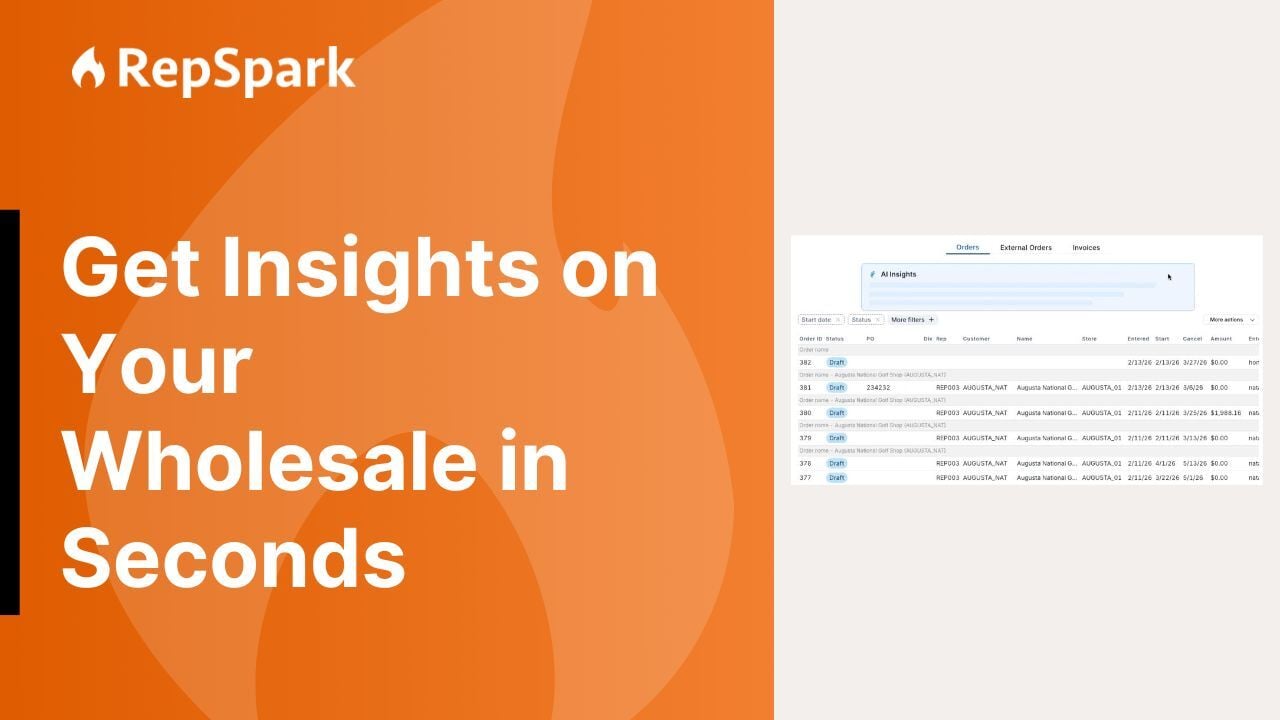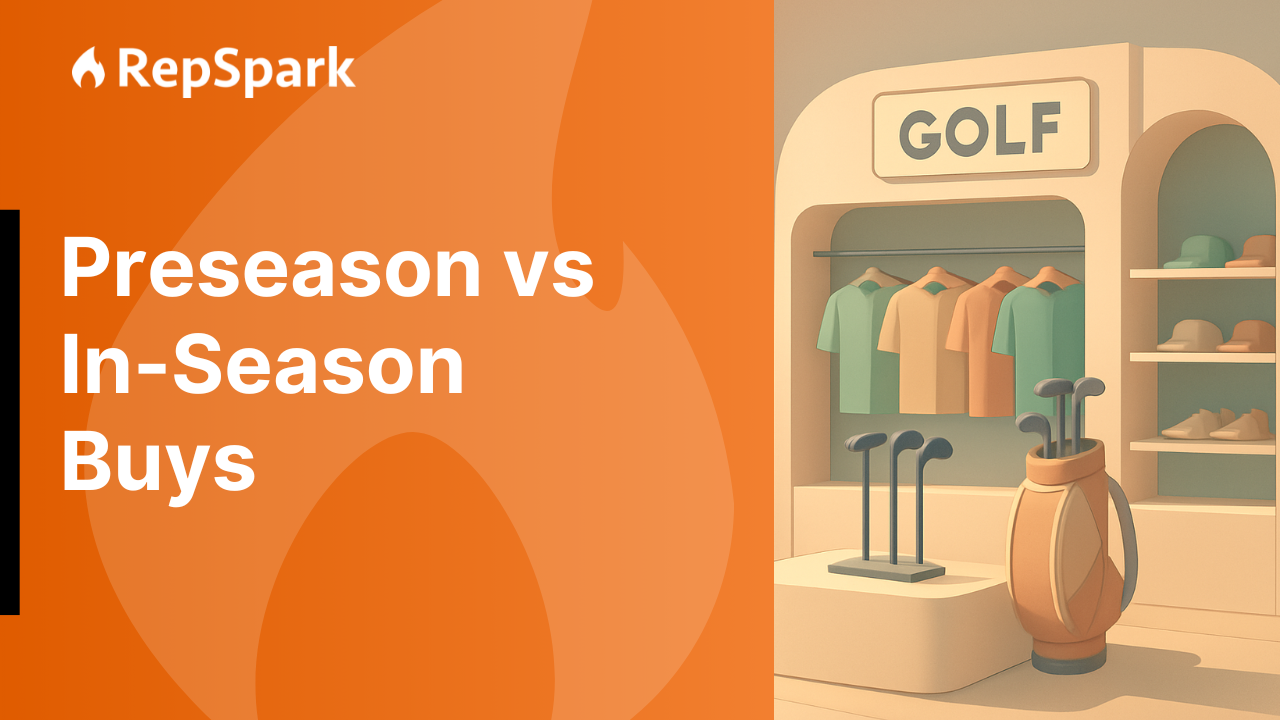ERP Integrations for Wholesale Ecommerce Platforms
- Chapter I: Introduction
- Chapter II: What B2B eCommerce platforms offer seamless ERP integrations?
- Chapter III: How can I connect my wholesale ordering system with my existing ERP software?
- Chapter IV: I'm looking for a solution that integrates my ERP with B2B sales. What should I consider?
- Chapter V: What are the advantages of having an integrated ERP and B2B eCommerce platform?
- Chapter VI: How can I ensure data consistency between my ERP and wholesale ordering system?
- Chapter VII: Conclusions
Introduction: Why ERP Integrations Matter for Wholesale
The ERP your wholesale brand uses is the brain of your business. It manages inventory, pricing, invoices, customer accounts, and financials.
But when your B2B eCommerce platform and ERP don’t talk to each other, you’re stuck with double data entry, order errors, and frustrated sales reps.
That’s why ERP integrations are much less a “nice to have,” and more of an essential part of doing business. The right B2B platform should plug directly into your ERP, syncing orders, customers, and inventory in real-time.
In this guide, we’ll answer the top questions wholesale brands ask about ERP integrations and how they can transform your digital ordering experience.
Related Content
What B2B eCommerce platforms offer seamless ERP integrations?
There are several B2B platforms that specialize in wholesale and are built with ERP integration in mind. Some of the most common options include:
- RepSpark: Purpose-built for wholesale brands with pre-built ERP connectors (NetSuite, SAP, Microsoft Dynamics, etc.) and API flexibility.
- NuORDER: Offers integrations, but often requires middleware or custom development.
- Elastic Suite: Strong with merchandising tools, but ERP integration typically needs IT resources.
- Shopify Plus (wholesale): Offers native integrations, but on a platform that is more DTC-focused than it is wholesale.
- Magento Commerce B2B: Powerful, and open source, but requires heavy development for ERP integration.
Your platform having a way to integrate with your ERP should be one of your top priorities, so look for a platform that has already integrated with companies using your ERP or for one that has open APIs that could build an integration with your ERP easily enough.
How can I connect my wholesale ordering system with my existing ERP software?
There are three common ways to connect a B2B eCommerce platform with your ERP:
- Pre-built connectors – Platforms like RepSpark provide direct integrations for popular ERPs like NetSuite, SAP, or Apparel Magic. These are usually the fastest and most reliable option.
- Middleware or iPaaS solutions – Tools like Celigo, Boomi, or MuleSoft act as a bridge between your ERP and eCommerce platform. This option requires people on staff that can continuously manage this middle step between your ERP and wholesale ecommerce platform.
- Custom APIs – For unique workflows, your dev team (or vendor) can build an API connection tailored to your ERP. Having a platform that offers ready-built integrations but can also build tailored options for your specific needs can be a big win for your brand.
The right path depends on your ERP system, budget, and internal resources.
The good news is that once it’s connected, you’ll eliminate duplicate entries and reduce costly order errors.
Related Content
I'm looking for a solution that integrates my ERP with B2B sales. What should I consider?
We’ve discussed some of the initial things you need to look at while you’re thinking about the ERP you want to use, but there are also a few other factors you should consider.
You want to make sure your platform has proven integrations for your ERP. You can generally find a section of a platform’s website dedicated to their integrations.
One of the first questions you want to ask when you’re on a demo call should be if orders, inventory, pricing, customer accounts, and invoices sync both ways. This ensures the data between the two platforms is always accurate.
Also consider scalability, will the integration still work smoothly when your order volume starts to grow?
What about flexibility? Does the platform allow you to configure customer workflows for your prebooks or at-once orders?
And how much support does the platform continue to give you once you’ve signed up? Do you get an integration partner or are you left to figure things out by yourself?
A good rule of thumb: don’t just look for “ERP integration” in a feature list. Dig into how deep and flexible that integration really is. (Remember that platforms that have strong integrations will dedicate multiple pages to inform you of those integrations.
Related Content
What are the advantages of having an integrated ERP and B2B eCommerce platform?
An integrated ERP and eCommerce platform is like having your wholesale team working in perfect sync. The benefits include:
- Real-time inventory updates that allow buyers to see what’s available now, not last week.
- Automated order entry that means no more retyping POs into your ERP.
- Account-specific pricing and terms that let buyers get the right discounts and payment rules automatically.
- Faster fulfillment so orders move instantly from portal to warehouse.
- Better reporting that allows sales, finance, and operations to all see the same data.
But, the biggest win comes in the efficiency it brings to your team. Your team spends less time fixing errors and more time growing accounts.
How can I ensure data consistency between my ERP and wholesale ordering system?
Data consistency comes down to two things: integration depth and sync frequency.
You want to choose a platform that supports real-time or near-real-time sync and not just once-a-day batch updates.
Make sure key data points (products, pricing, inventory, orders, invoices, customer records) are included in the integration.
Use validation rules so incorrect data doesn’t flow between systems. And regularly audit your integration logs to catch sync errors early.
Pro tip: ERP integration isn’t “set it and forget it.” Work with your vendor on ongoing monitoring to make sure data stays accurate as your business evolves.
Related Content
Conclusions: ERP Integrations WIth Your B2B Will Produce Wholesale Growth at Scale
For wholesale brands, ERP integration is the foundation of a scalable B2B eCommerce strategy. It ensures data accuracy, saves your team hours of manual work, and gives buyers a smooth online ordering experience.
If you’re ready to explore how RepSpark connects seamlessly with your ERP, book a demo and see how we help wholesale brands simplify ordering and scale faster.
From Our Blog
Stay up to date with what is new in our industry, learn more about the upcoming products and events.

RepSpark Flow Brings B2C Ease to Wholesale

What AI-Powered Insights on RepSpark Mean for Your Brand


